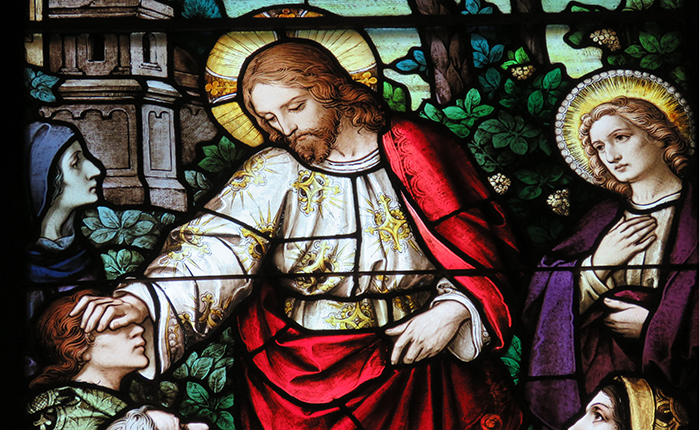Dear Friends,
Let me continue our discussion from last week on the Sacrament of the Sick. We will now be offering the
Sacrament at the 11:00 Mass on the last Sunday of every month.
The Sacrament of the Anointing of the Sick is one of the ways Jesus assists us in life and offers his divine
help. Through this Sacrament, Jesus offers his courage, strength, and healing—including spiritual healing
in the forgiveness of sins. Jesus is with us, his Church, as members face the difficulties inherent in being
human.
The Church recommends that the Sacrament be celebrated with a gathering of the Christian faithful.
While it can be administered by a priest with only the sick person present, it is best if family and friends
are gathered as a sign of the Church’s concern. Obviously, if the Sacrament is being offered in a home and
the person wishes to receive Reconciliation as a part of the Sacrament, then others would leave during the
confession of sin and return afterwards. Suffering has a communal aspect. If one person suffers, all suffer.
The Sacrament is intended to address and heal the suffering of all.
The ritual of the Sacrament involves a laying on of hands and an anointing with the Oil of the Infirm, first,
on the forehead, and then on the palm of the hands, with the words: “Through this holy anointing may the
Lord in his love and mercy help you with the grace of the Holy Spirit. May the Lord who frees you from
sin save you and raise you up.”
Ideally, Catholics should be “up-to-date” on their Sacraments long before death or the danger of death
ensues. Every Catholic who faces death, whether sudden, or at the end of a long illness, should be able to
say they have recently received Eucharist, and that Reconciliation has been celebrated within a reasonable
period of time. Further, those who are ill and have not died suddenly and unexpectedly, ought to have
been anointed at some time prior to death. There is no need to wait until the last moment. In such cases,
there is no emergency need to summon the priest, for the Anointing has already been provided.
Emergency Anointings ought to be reserved for those who are suddenly stricken or for those who are in
accidents.
How we will provide this Sacrament at Mass – will be as follows: After the period of silence following the
homily, the deacon will invite those who would like to be anointed to stand (if they are incapable of
standing, then someone near them should stand in their place). A prayer of healing will be prayed over all
those who are standing. The priest will then move into the congregation to those who are standing, once
by them he will place his hands on their head and pray silently for a moment, then he will anoint their
forehead and hands with the holy oil while the formula of the Sacrament is being spoken. Those who are
sitting near the person to be anointed are invited to extend their hands over the person while the anointing
is happening. This can all be done quite quickly and should not make the celebration of Mass extend much
longer than usual. Again, this will be done only on the last Sunday of the month at the 11:00 Mass.
I hope that providing the Sacrament monthly at a Mass will allow more people to be anointed and receive
the graces God brings through this Sacrament. As the Church teaches in the Catechism, “a grace of this
sacrament is one of strengthening, peace and courage to overcome the difficulties that go with the
condition of serious illness or the frailty of old age. This grace is a gift of the Holy Spirit, who renews
trust and faith in God and strengthens against the temptations of the evil one, the temptation to
discouragement and anguish in the face of death.”
Peace,
Fr. Damian



